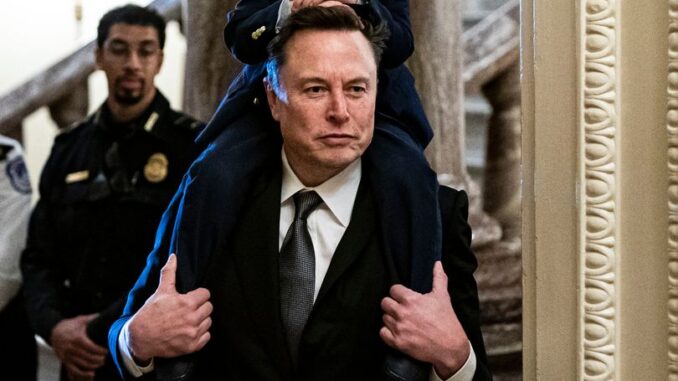
Liverpool Owners Dismiss Elon Musk Rumors: The Truth About FSG’s Stance
Liverpool Football Club, one of the most storied institutions in global football, is not up for sale. Recent speculation suggesting otherwise, including rumors of interest from billionaire entrepreneur Elon Musk, has been firmly denied by Fenway Sports Group (FSG), the club’s American owners. The statement comes amidst heightened curiosity and misinformation about the club’s future and ownership structure.
The Source of the Speculation
The rumors linking Elon Musk to a potential bid for Liverpool seemed to emerge out of thin air but quickly gained traction across social media platforms and footballing circles. Musk, known for his ambitious ventures with Tesla, SpaceX, and X (formerly Twitter), has occasionally teased interest in high-profile acquisitions, often with little substance behind the claims. However, no credible evidence has surfaced to suggest Musk or any other interested party has approached FSG with an offer for Liverpool.
FSG’s Official Stance
Fenway Sports Group, who acquired Liverpool in 2010, has reiterated its commitment to the club. The ownership group, led by John W. Henry and Tom Werner, is credited with steering Liverpool to a period of unprecedented commercial success and a return to footballing dominance, including a Champions League triumph in 2019 and a long-awaited Premier League title in 2020.
In a statement addressing the rumors, FSG made it clear that Liverpool is not on the market and that no formal approaches have been made. The group has consistently emphasized its focus on the continued growth and success of the club, both on and off the pitch.
Why the Rumors Persist
The speculation about Liverpool’s sale likely stems from broader trends in football and previous announcements by FSG. In late 2022, FSG confirmed they were open to minority investment in the club to help fund future projects and maintain competitiveness in the rapidly evolving football landscape. This acknowledgment of seeking external investment may have been misconstrued as a sign of willingness to sell the entire club.
Additionally, Liverpool’s immense global appeal makes it a frequent topic in discussions about potential takeovers. As one of the most valuable football clubs in the world, it’s easy to see why billionaires like Musk are occasionally linked to the Reds, even without any substantial basis.
The Stability Under FSG
Under FSG’s stewardship, Liverpool has experienced a renaissance. Key achievements during their ownership include:
- Infrastructure Development: The expansion of Anfield’s Main Stand and ongoing redevelopment projects have solidified the club’s stadium as a world-class venue.
- On-Pitch Success: The partnership with manager Jürgen Klopp has led to a golden era, with Liverpool reclaiming its position as a force in both domestic and European football.
- Financial Growth: FSG’s management has transformed Liverpool into a commercially robust entity, securing lucrative sponsorship deals and expanding the club’s global fanbase.
Given these accomplishments, it’s no surprise that FSG is not eager to part ways with a club that has flourished under their guidance.
Why Elon Musk Is an Unlikely Buyer
While Elon Musk is known for his eclectic interests and willingness to disrupt traditional industries, his rumored interest in Liverpool appears unfounded. Musk has shown little genuine engagement with the world of football and has yet to make any public statements about a desire to own a football club. Additionally, his focus remains on his existing companies, each of which requires significant attention and resources.
Even if Musk were to express interest, buying Liverpool would involve more than just writing a check. Owning a football club of Liverpool’s stature requires a deep understanding of the sport, a commitment to its traditions, and alignment with the expectations of its passionate fanbase—an undertaking that extends far beyond Musk’s typical areas of expertise.
Looking Ahead: What’s Next for Liverpool?
While FSG has clarified that Liverpool is not for sale, their openness to minority investment indicates a forward-thinking approach. This strategy could allow the club to remain competitive in a football world increasingly dominated by state-backed clubs and billionaire owners. The funds from such an investment could be used to:
- Further enhance Anfield’s infrastructure.
- Support Klopp’s efforts to rebuild and strengthen the squad.
- Expand the club’s global reach through innovative marketing and fan engagement initiatives.
For now, Liverpool fans can take comfort in the stability provided by FSG. Despite the swirling rumors, the club’s trajectory remains positive, with a clear vision for future success.
Conclusion: No Sale, No Musk, Just Progress
In the high-stakes world of football, ownership rumors are nothing new. However, Liverpool’s situation under FSG remains one of stability and ambition. While Elon Musk’s name may generate headlines, the reality is far less dramatic. FSG’s commitment to the club, combined with their openness to strategic partnerships, ensures that Liverpool is well-positioned to thrive in the years to come—with or without the involvement of tech billionaires.
Leave a Reply